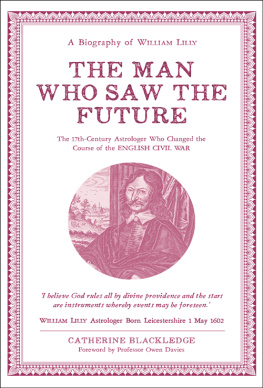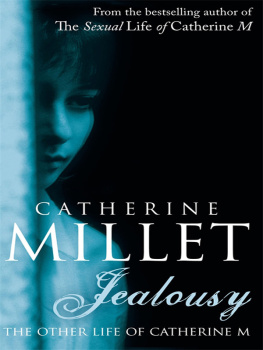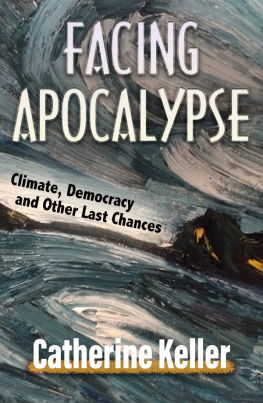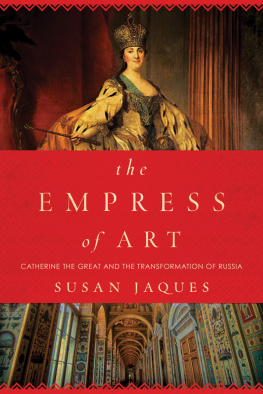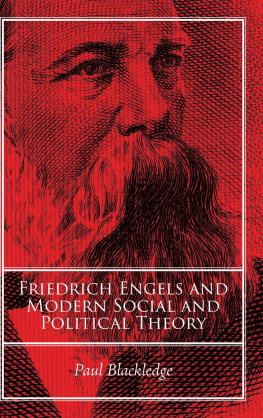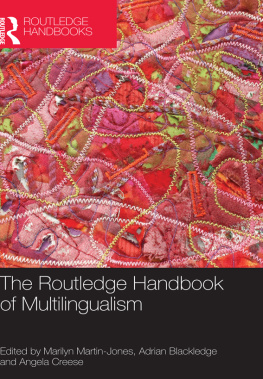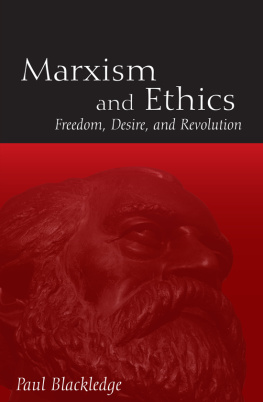Catherine Blackledge - The Man Who Saw the Future
Here you can read online Catherine Blackledge - The Man Who Saw the Future full text of the book (entire story) in english for free. Download pdf and epub, get meaning, cover and reviews about this ebook. year: 2014, publisher: Watkins Media, genre: Non-fiction. Description of the work, (preface) as well as reviews are available. Best literature library LitArk.com created for fans of good reading and offers a wide selection of genres:
Romance novel
Science fiction
Adventure
Detective
Science
History
Home and family
Prose
Art
Politics
Computer
Non-fiction
Religion
Business
Children
Humor
Choose a favorite category and find really read worthwhile books. Enjoy immersion in the world of imagination, feel the emotions of the characters or learn something new for yourself, make an fascinating discovery.
- Book:The Man Who Saw the Future
- Author:
- Publisher:Watkins Media
- Genre:
- Year:2014
- Rating:3 / 5
- Favourites:Add to favourites
- Your mark:
- 60
- 1
- 2
- 3
- 4
- 5
The Man Who Saw the Future: summary, description and annotation
We offer to read an annotation, description, summary or preface (depends on what the author of the book "The Man Who Saw the Future" wrote himself). If you haven't found the necessary information about the book — write in the comments, we will try to find it.
The Man Who Saw the Future — read online for free the complete book (whole text) full work
Below is the text of the book, divided by pages. System saving the place of the last page read, allows you to conveniently read the book "The Man Who Saw the Future" online for free, without having to search again every time where you left off. Put a bookmark, and you can go to the page where you finished reading at any time.
Font size:
Interval:
Bookmark:
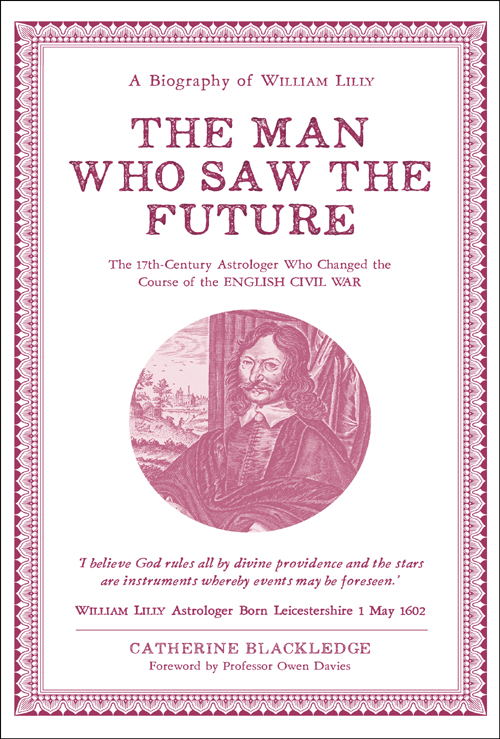
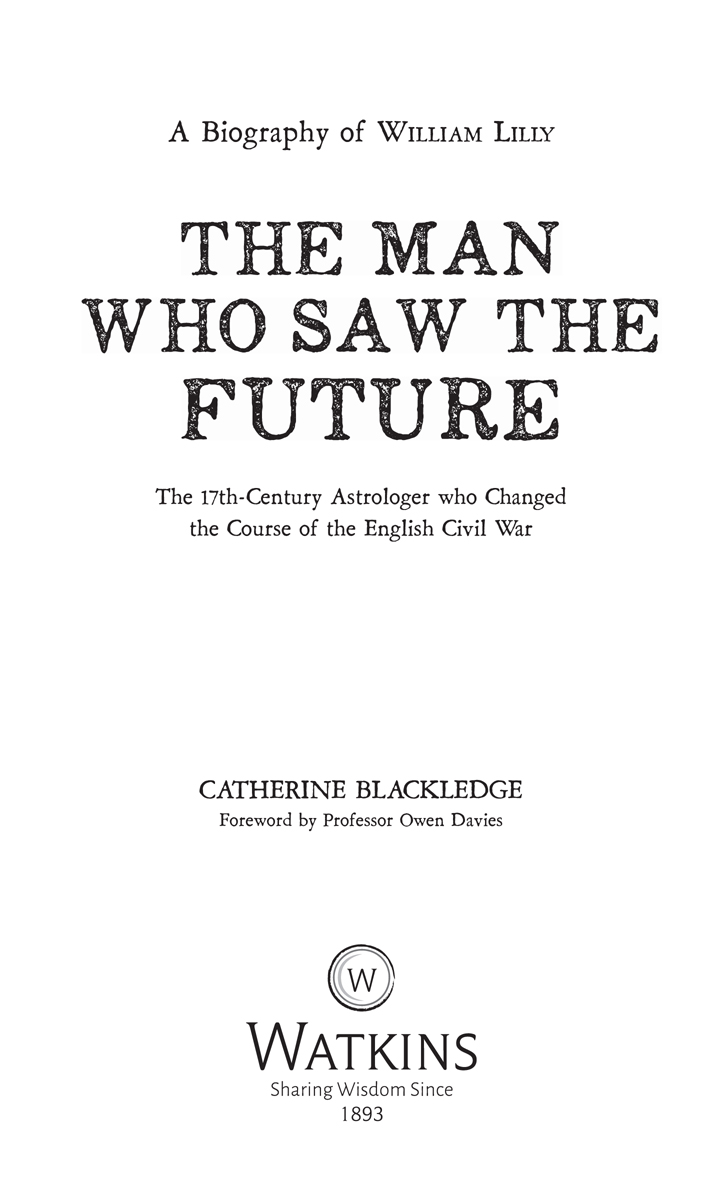
For Steve and Willow Rose
The story of William Lillys life is a glinting mirror of his times, the man himself no mere observer but inextricably woven into the rich narrative of the political and religious history of mid 17th-century England. During the Civil War years he walked the tightrope between royalist and parliamentarian patronage, his criticism of the monarchy encoded in his astrological prophecies. Come the Restoration and Lilly was selling tens of thousands of his almanac a year. Since he was a conspicuous London figure, it is no surprise to find Samuel Pepys recording in his diary for October 1660 an evening spent in Lillys study, singing and chewing over astrological matters. His fame was enhanced further by his apparent prediction of the Great Fire of London in 1666.
So, Lilly is hardly a forgotten figure. He has been the subject of a couple of books, and is acknowledged as a key figure of his age in histories of English astrology, but I have long thought that there was space for a new biography of this extraordinary man, one that took into account recent studies in the field, and explored something of his inner life. My mind turned to doing this a couple of years ago, but as if governed by some obscure astrological conjunction, Dr Catherine Blackledge contacted me out of the blue to say that she was well advanced in doing this very task. It has been my pleasure to read the resulting book.
While he was both celebrated and derided as an astrologer, Lillys private interests in the occult, and by this I mean the hidden and secret power of the natural world, were much wider than natural and judicial astrology. Lilly and his fraternity went on treasure-hunting expeditions using his dowsing sticks, or Mosaical Rods as they were grandly called. He attempted to communicate with the Queen of the Fairies, and he created sigils (magical symbols) and charms for protection. Like his fellow male and female astrologers of the era, Lilly was as much a physician as a prognosticator. He was a piss-prophet who inspected his clients urine to detect what ailed them perhaps the pox or possibly witchcraft (his casebooks reveal numerous instances of bewitched clients). The planets that governed different healing plants and dictated the most astrologically propitious moments to harvest them were crucial ingredients in popular herbals of the period, most notably those written by Lillys acquaintance Nicholas Culpeper.
Blackledges history of Lilly does much more than provide an account of the man himself: it depicts an intellectual world on the cusp of change. While Lilly and his fellow members of the Society of Astrologers pondered over their celestial calculations, a profound debate was taking place as to the nature of the world and the heavens, a debate that was central to the future of science and religion. On one side there were those who upheld the reality of a material realm imbued with myriad intangible spiritual forces a conception of Gods creation that allowed for the existence of witches, demons, ghosts and miracles. On the other side were those, inspired by the likes of Descartes, who proposed that matter was a passive substance, and who saw the heavens as a distant, mechanistic, mathematical realm. There were many who situated themselves in various stages between the two extremes. Astrology was caught in the middle. For some, it was a science that had a clock-like philosophy of causation based on the ancient notion that the radiating essence of the planets and stars influenced every aspect of the mundane world. But others held a more mystical perspective best summed up in the hermetic philosophy, As above, so below, which saw the universe as connected and ensouled. These debates, though, were of little interest to, or beyond the understanding of, many of Lillys considerable clientele, which ranged from the aristocracy and Members of Parliament to servant girls. In a chaotic world, astrology, and the magical and medical services it facilitated, provided a sense of order and succour.
Thanks to his popular publications, Lillys name was one to be conjured with across the land. Cunning-folk from Essex to Somerset impressed their clients with their boasts of having learned their occult knowledge from the London oracle. His influence on popular culture stretched long beyond his lifetime. Original editions of Christian Astrology, his three-volume guide to the sidereal science, were much-sought items in the second-hand occult book trade of the 19th century. These volumes were to be found on the bookshelves of rural and urban cunning-folk and astrologers, alongside the works of more recent rising stars in the almanac business, such as Raphael and Zadkiel. Lillys influence continued to permeate popular belief and practice through his later readership, just as Culpepers proved an enduring influence on 19th-century popular medicine.
Blackledges story of Lillys life and times, based in part on his own posthumously published autobiography, and drawing upon original archive material as well as academic studies, illuminates the enduring reach of this charismatic character and his application of astrology for the masses. By taking an imaginative and sometimes speculative approach to her subject, one that academics usually fear adopting, we gain fresh insight into a tumultuous period, and are drawn closer to the man and his interpretation of the world around him one that is far from dead.
At exactly 11am on Monday 15 September 2003, a commemorative plaque was unveiled in the heart of London in honour of one of Englands unsung luminaries the 17th-century astrologer William Lilly (16021681).
To be eligible for what are known as Westminster plaques, individuals must be highly regarded by their profession, have made a positive contribution to human welfare or happiness and be either recognizable to the well-informed passer-by or deserving of national recognition. The first person to be celebrated in this way was Sir Winston Churchill; others include Oscar Wilde and computer pioneer Charles Babbage. Lilly was the 53rd recipient of a plaque, and the first astrologer.
What is it about Lilly? Coming from a humble farming family, he rose by his own efforts to become the most famous man in England more acclaimed than Charles I or Oliver Cromwell. He was a publishing sensation and the nations first ever media darling (celebrated in print and song), thanks to his bestselling pamphlets containing uncannily accurate forecasts about events of national importance.
During the Civil War, he was a key figure consulted at the highest level by the King and Parliament, as well as by the radical sects. His astrological intelligence on the timing of critical battles helped win the war for Parliament. A true democrat, he was committed to making the science of the stars accessible to all, whatever their background. He helped everyone who came to him, even those who could not pay.
Because of Lilly, astrology became a mass phenomenon; he held the populace in thrall with his predictions and had the power to bring the nation to a standstill. But the hold he had over the public concerned and angered establishment figures, and many tried to silence him. William outwitted his opponents again and again.
Universities study his writings, associations still celebrate his life; his entry in the Dictionary of National Biography of necessity runs to several pages. He was talented, charming, mercurial, democratic and wily, but it is only in recent years that the full extent of his influence and vision has begun to be appreciated. As the city of London identified, William Lilly is deserving of national recognition.
Next pageFont size:
Interval:
Bookmark:
Similar books «The Man Who Saw the Future»
Look at similar books to The Man Who Saw the Future. We have selected literature similar in name and meaning in the hope of providing readers with more options to find new, interesting, not yet read works.
Discussion, reviews of the book The Man Who Saw the Future and just readers' own opinions. Leave your comments, write what you think about the work, its meaning or the main characters. Specify what exactly you liked and what you didn't like, and why you think so.

